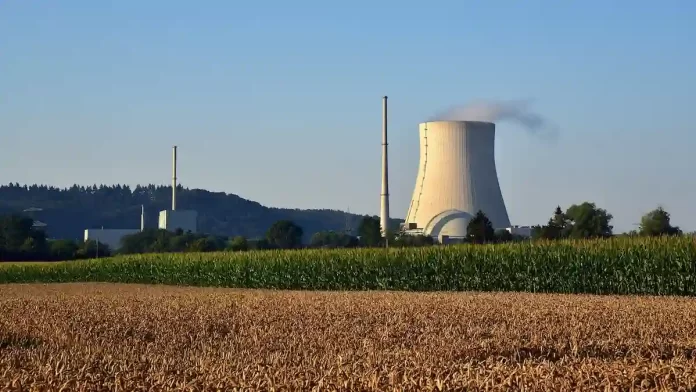The Nuclear Suppliers Group (NSG) is a crucial international organization that plays a significant role in the regulation of global nuclear commerce.
Formed in response to nuclear proliferation concerns, the NSG aims to control the export of nuclear materials, equipment, and technology to prevent their misuse for nuclear weapons development.
10 important facts about NSG
- Establishment: The NSG was established in 1974 in response to India’s nuclear test, which highlighted the need to prevent the spread of nuclear weapons technology.
- Informal Group: The NSG operates as an informal group of nuclear supplier countries without any legally binding charter or treaty. Decisions are made by consensus among member states.
- Membership: The NSG is composed of 48 participating governments as of 2023. These states are considered to be responsible nuclear suppliers and have demonstrated a commitment to nuclear non-proliferation.
- Guidelines: The group’s primary mechanism for nuclear regulation is the NSG Guidelines. These guidelines outline the criteria and conditions for nuclear exports, setting stringent controls to ensure that nuclear materials and technology are used exclusively for peaceful purposes.
- Dual-Use Items: The NSG Guidelines cover not only nuclear materials but also dual-use items, such as certain technologies and equipment that can have both civilian and military applications in the nuclear field.
- Nuclear Non-Proliferation Treaty (NPT) Link: Although the NSG is a separate entity, its guidelines are strongly linked to the Nuclear Non-Proliferation Treaty. It requires non-nuclear-weapon states to be NPT signatories to receive nuclear exports from NSG members.
- India’s Unique Waiver: In 2008, the NSG granted a unique waiver to India, allowing it to engage in nuclear trade with NSG members despite not being a party to the NPT. This decision recognized India as a responsible nuclear state and enabled nuclear commerce with the country.
- China’s Objections: China, a member of the NSG, has expressed objections to India’s waiver, citing concerns about nuclear proliferation. China’s stance has hindered India’s attempts to become a full member of the NSG.
- Expansion Challenges: The NSG has faced challenges in expanding its membership. Several non-NPT countries, such as India and Pakistan, have sought membership, but concerns over their nuclear programs and regional dynamics have complicated the process.
- Evolving Challenges: Over time, the NSG faces new challenges as nuclear technology and trade evolve. The group continually updates its guidelines to adapt to emerging proliferation risks and technological advancements.
Relation between NSG, NPT and IAEA
The Nuclear Suppliers Group (NSG), the Nuclear Non-Proliferation Treaty (NPT), and the International Atomic Energy Agency (IAEA) are three interconnected entities that work together to promote nuclear non-proliferation and peaceful uses of nuclear technology. Let’s explore the relationship between these three organizations
Nuclear Suppliers Group (NSG)
The NSG is a group of nuclear supplier countries that seeks to regulate the export of nuclear-related materials, equipment, and technology.
It was formed in 1974 in response to India’s nuclear test and aims to prevent nuclear proliferation by controlling the transfer of sensitive nuclear items.
NSG members are responsible nuclear suppliers that are committed to upholding stringent export controls and non-proliferation norms.
The NSG Guidelines outline criteria and conditions for nuclear exports, with a focus on non-proliferation safeguards.
Nuclear Non-Proliferation Treaty (NPT)
The NPT is an international treaty established in 1968 with the goal of preventing the spread of nuclear weapons and promoting nuclear disarmament.
It has three main pillars: non-proliferation, disarmament, and the peaceful use of nuclear energy.
The NPT divides countries into two categories:
- Nuclear-Weapon States (NWS): These are the countries that possessed nuclear weapons before the treaty’s inception in 1968. They include the United States, Russia, China, France, and the United Kingdom.
- Non-Nuclear-Weapon States (NNWS): These are countries that do not possess nuclear weapons. They have committed not to develop or acquire them.
International Atomic Energy Agency (IAEA)
The IAEA is an independent international organization that operates under the United Nations system.
Its primary mandate is to promote the peaceful use of nuclear energy while verifying and ensuring nuclear non-proliferation.
The IAEA plays a crucial role in monitoring and verifying NPT compliance by conducting inspections and safeguards in nuclear facilities of member states.
It assists member states in developing and implementing peaceful nuclear applications, such as energy generation, medicine, agriculture, and research.
Relationship Between the Three
- The NPT and the IAEA are multilateral instruments that work in tandem to achieve their goals of nuclear non-proliferation and peaceful use.
- The NPT sets the framework for nuclear non-proliferation by outlining the obligations of NWS and NNWS. It places specific non-proliferation commitments on NNWS, including allowing IAEA safeguards inspections to ensure they are not diverting nuclear materials for weapons purposes.
- The IAEA plays a central role in verifying NPT compliance through its inspections and safeguards activities. It provides assurances to the international community that nuclear materials in civilian facilities are not diverted for military purposes.
- The NSG complements the NPT and the IAEA by further regulating nuclear exports among its members. It ensures that nuclear technology and materials are transferred only to countries that meet strict non-proliferation criteria and have robust safeguards in place.
In summary, the NPT sets the legal framework for nuclear non-proliferation, the IAEA verifies compliance with the NPT through inspections, and the NSG adds an additional layer of control by regulating nuclear exports among its members to prevent proliferation risks.
Together, these organizations aim to promote nuclear disarmament, prevent the spread of nuclear weapons, and facilitate the peaceful uses of nuclear energy worldwide.
Conclusion
The Nuclear Suppliers Group (NSG) serves as a critical forum for nuclear supplier countries to coordinate efforts and regulate the global trade of nuclear materials, equipment, and technology.
Its focus on non-proliferation and commitment to peaceful use are essential in ensuring nuclear technology benefits humanity while minimizing the risk of nuclear weapons proliferation.
As nuclear commerce continues to evolve, the NSG will play a vital role in addressing emerging challenges and safeguarding the world against nuclear threats.
